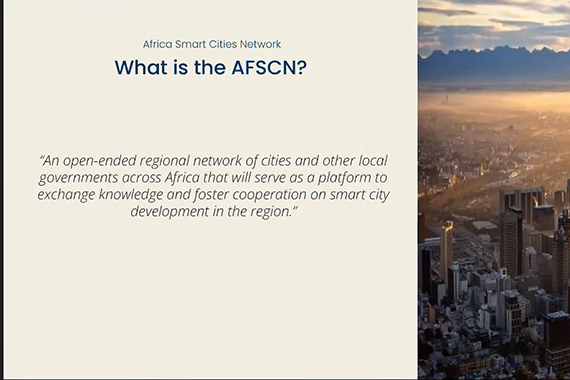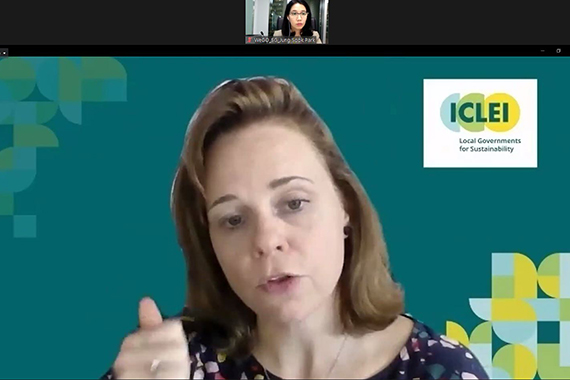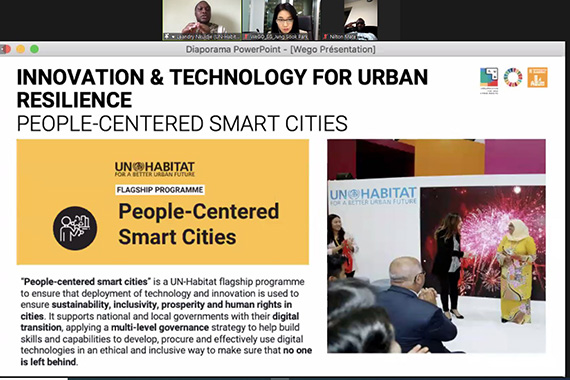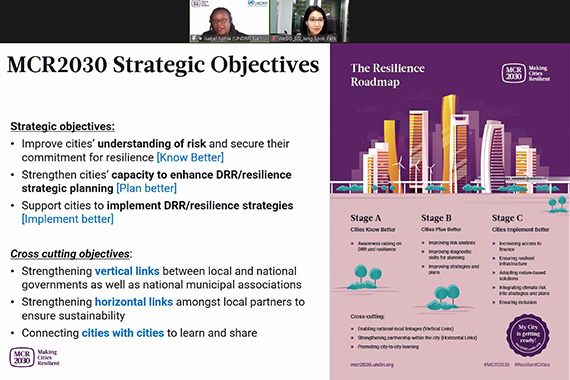Urban resilience discussed at online workshop for African city officials
November 25, 2021
SEOUL – Building on the Africa Smart Cities Ntwork (AFSCN) Seminar held in June, this afternoon WeGO held its first workshop on the topic of urban resilience. Around 50 Africa city officials took part to share their ideas and insights on how African cities, towns, and villages should tackle key challenges to build more resilient communities
With over 50 local government members in Africa, WeGO established the AFSCN with the aim of it becoming a platform that facilitates smart transformation through knowledge sharing and project collaboration. Following the discussion at the June seminar on the need for and the opportunities presented by smart cities in Africa—centered on themes of leadership, community engagement, capacity building, and regional cooperation—urban resilience was selected as the next topic by participants.
In the first session, major regional actors introduced the measures they have taken to improve urban resilience in Africa. UN-Habitat presented its projects developed to support local governments in transforming urban areas to safer and better places to live, such as the City Resilience Profiling Tool, which helps cities understand what actions are specifically needed for them to become resilient, and the Urban Governance Labs, which brings together young people, researchers, urban planners, architects and leaders to develop local best solutions to improve the governance of their cities.
ICLEI Africa introduced their efforts in assisting cities to build resilience for the past 50 years, for instance with the “Enabling Africa Cities for Transformative Energy Access (ENACT)” program conducted in partnership with the UK government to create an enabling environment to provide adequate, safe, reliable, clean and affordable access to energy to the urban poor in informal settlements through market led solutions.
UNDRR highlighted the key lessons learned from the previous 10 years in the field of smart city development and urban resilience, insisted that all need to access different tools, partners and services depending on their own particularities, and promoted its “Making Cities Resilient 2030” initiative, which aims to build a platform that brings together partners and cities together with national governments and agencies to discuss and help each other in their resilience journey.
Next participants engaged in an interactive on how effective the already existing local government policies are in achieving urban resilience, and what smart technologies could be implemented to prevent future shocks.
In her special remarks, the Director of WeGO’s Africa Regional Office Abiodun Esset declared the significance of leveraging data for solving city challenges, especially with increasing consequences of climate change.
WeGO will continue AFSCN activities next year, reflecting the feedback received from participants. To express your interest in the AFSCN and willing to participate, please let us know by filling out the form at the bottom of the webpage. To watch the webinar and download the presentation materials, please visit WeGO’s website.





